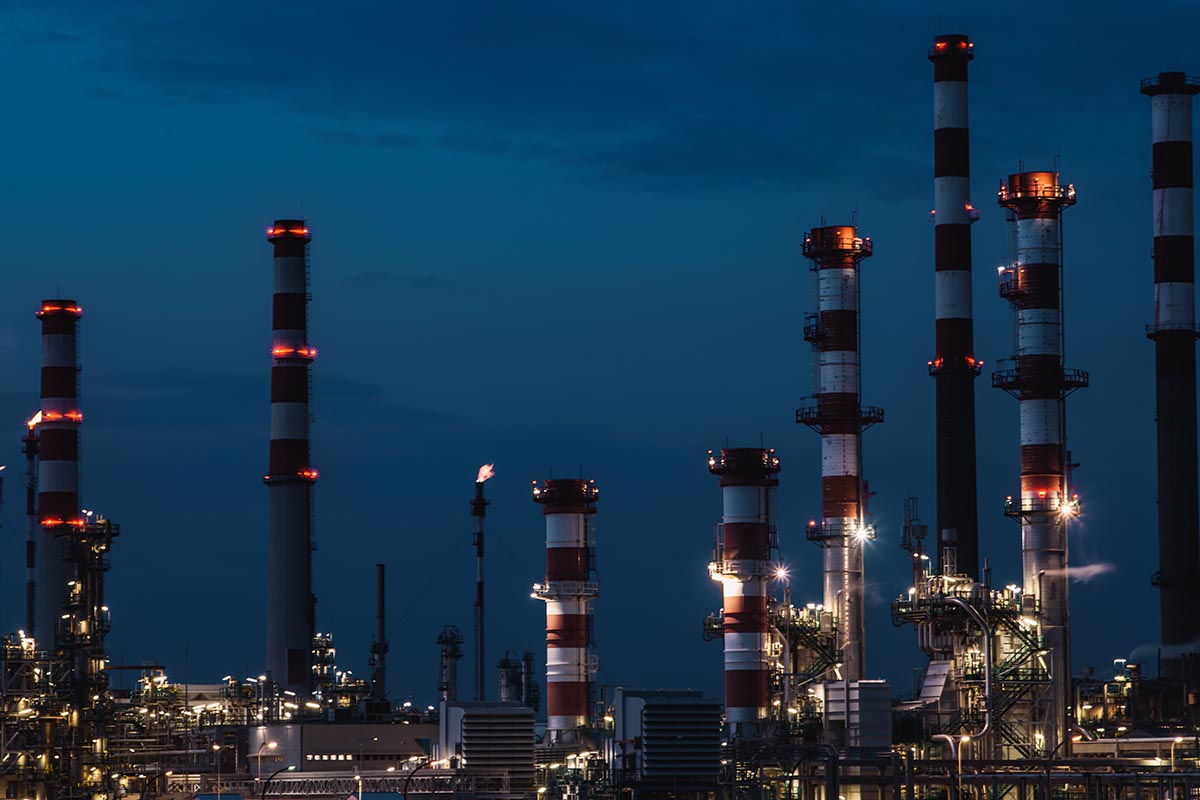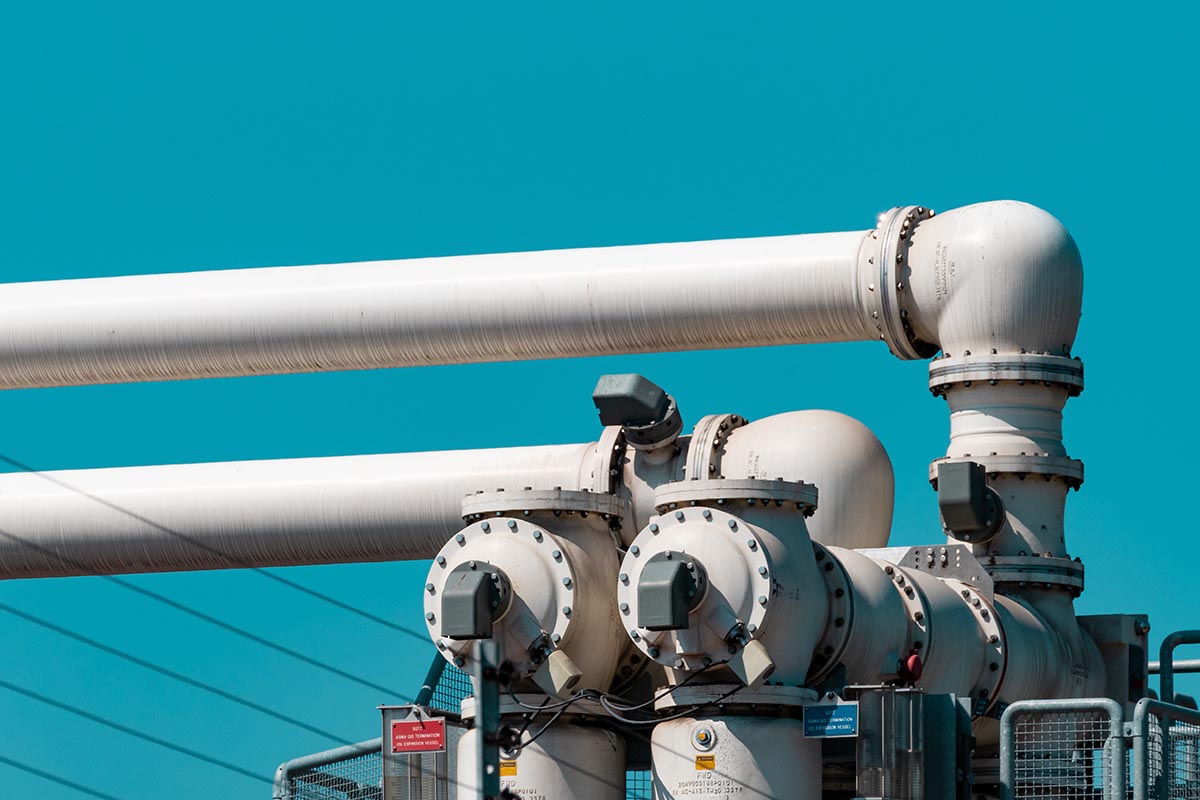How To Ensure There Are No Leaks In Your Industrial Plant
Key Points
- Proactive Maintenance Reduces Costs: Regular inspections, predictive strategies, and corrosion prevention minimize leaks, downtime, and costly repairs.
- Training and Communication Are Key: A well-trained workforce with clear reporting channels ensures early detection and effective management of leaks.
- Invest in Advanced Leak Detection: Modern technologies like acoustic sensors and infrared cameras enable immediate intervention, preventing major issues.
Leaking pipes and equipment can be a major headache for any industrial plant.
Not only do they lead to the loss of valuable resources, but they can also pose serious safety risks and environmental concerns.
To keep your industrial plant running smoothly, efficiently, and without any leaks, you need a proactive approach to maintenance and monitoring.
Following these recommendations can save time and money while enhancing your operations’ overall safety and sustainability.
Regular Inspections and Maintenance
Preventing leaks starts with regular inspections and maintenance.
It would be best to create a schedule for routine checks of all your equipment and piping systems.
Identify and address any signs of wear and tear, corrosion, or damage as soon as they are detected.
Finding a gasket manufacturer in the UK can help streamline your supply chain, reduce lead times, and ensure the availability of high-quality, locally sourced gaskets tailored to your specific industrial plant needs.
The earlier you catch potential issues, the easier and less costly they are to repair.
You don’t want to wait until a small leak becomes a major problem that could shut down your operations.
Implement a Predictive Maintenance Program
Beyond routine inspections, implementing a predictive maintenance program can significantly reduce the risk of leaks.
By using data and analytics, you can predict when equipment or pipes are likely to fail, allowing you to replace or repair any necessary piping or expansion joints, as well as other pieces of equipment, long before leaks occur.
This proactive approach minimizes downtime and costly emergency repairs.
Modern technologies, such as sensors and machine learning, can be instrumental in setting up an effective predictive maintenance system.
Training and Education
Properly trained staff can make a world of difference when it comes to preventing leaks.
Ensure that your team is well-versed in the specific equipment and systems they are responsible for.
They should know how to identify potential issues and take appropriate action.
Regular training and updates on best practices in leak prevention can go a long way in ensuring that everyone is on the same page and working toward the same goal.
Specialized Equipment Handling
Industrial plants often use complex and specialized equipment, which demands a high level of expertise to operate safely and effectively.
Proper training ensures that your team knows how to operate this equipment correctly, reducing the risk of accidental damage or wear and tear.
Moreover, a well-trained workforce can recognize the subtle signs of equipment stress or malfunction, helping to identify potential issues before they lead to leaks.
Effective Communication and Reporting
Training is not limited to just hands-on skills – it should also focus on the importance of communication and reporting.
Your team needs to know how to report anomalies, potential leaks, or unsafe conditions promptly.
This means fostering a culture of open communication and providing clear reporting channels.
Encouraging employees to voice their concerns without fear of repercussions can help you catch issues early and address them before they escalate.
n addition, training on documentation and record-keeping can be crucial for maintaining a detailed history of your equipment and any incidents, aiding in future prevention efforts and audits.
Environmental and Safety Compliance
Compliance with environmental and safety regulations is paramount in leak prevention.
By adhering to industry standards and regulations, you not only avoid potential fines and legal issues but also create a safer work environment.
Invest in the necessary safety equipment and procedures, and conduct regular audits to ensure that you are up to code.
Regulatory Adherence
Staying current with all relevant regulations is essential to guarantee leak prevention and maintain a safe work environment.
This involves not only understanding the existing regulations but also staying informed about any updates or changes in the legal landscape.
Failing to comply with these regulations can result in hefty fines and legal complications.
Therefore, your staff should be well-informed about the specific regulations that pertain to your industry and plant, and compliance should be a top priority.
Safety Equipment and Procedures
Invest in the right safety equipment and procedures. This includes protective gear for your staff, emergency response tools, and safety protocols.
For example, in chemical plants, it’s crucial to have adequate ventilation, eyewash stations, and emergency showers. Regularly inspect and maintain safety equipment to ensure they are fully functional.
In case of any accidents or leaks, having the appropriate equipment and procedures in place can be the difference between a minor incident and a major catastrophe. Regular safety drills and exercises can help your team become proficient in handling emergencies effectively.
Corrosion Prevention and Material Selection
One major cause of leaks in industrial plants is corrosion.
When metals in your equipment or piping systems corrode, they weaken and become susceptible to leakage. It’s essential to employ corrosion prevention techniques, such as coatings, cathodic protection, and proper material selection to prevent this.
Choosing materials that are resistant to the substances they’ll come into contact with, as well as the operating conditions, can significantly extend the lifespan of your equipment and reduce the likelihood of leaks.
Leak Detection Systems
In addition to preventative measures, a reliable leak detection system is crucial.
These systems are designed to identify leaks as soon as they occur, allowing for immediate intervention.
Modern technologies like acoustic sensors, infrared cameras, and gas analyzers can detect leaks promptly, preventing them from escalating into major issues.
Regularly maintaining and calibrating these systems is paramount to their effectiveness.
Emergency Response Plan
Even with the best prevention and detection measures in place, there’s always a slight chance that a leak could occur.
To minimize the potential damage, it’s vital to have a well-defined emergency response plan.
Ensure that your team knows how to react swiftly and efficiently in case of a leak.
This includes shutting down affected equipment, containing and neutralizing hazardous materials, and evacuating the area if necessary.
Regular drills and training can help ensure everyone is prepared for such scenarios.
Preventing leaks in an industrial plant is a multi-faceted endeavor that combines proactive maintenance, predictive strategies, staff training, compliance with regulations, corrosion prevention, advanced detection systems, and a well-prepared emergency response plan.
The financial, safety, and environmental implications of leaks make these efforts essential and cost-effective in the long run.
By diligently following the steps outlined, you can safeguard your industrial plant against leaks, enhancing both its efficiency and the well-being of all those involved.
Remember, an ounce of prevention is worth a pound of cure for leaks in your industrial plant.




















